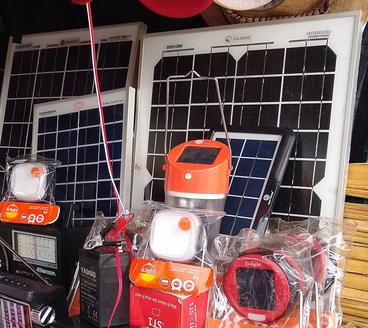Elise Harrington joined the faculty of the Humphrey School of Public Affairs this fall right in the midst of the COVID-19 pandemic, but she says she’s already feeling at home as an assistant professor in the School’s Center for Science, Technology, and Environmental Policy.
Harrington’s research focuses on sustainable energy, and how interpersonal relationships and social organization influence the design and implementation of policies, programs, and services related to sustainable energy.
She joins the Humphrey School after completing her doctoral degree at the Massachusetts Institute of Technology (MIT), where she studied renewable energy and environmental policies primarily at the local level.
“[For example], looking at energy efficiency and consumption in buildings. How do we make our buildings more efficient, but also more comfortable places to be in? How do we encourage people to change their behaviors in how they consume and use energy?”
Finding answers to those questions led her to India and Kenya. As a fellow at MIT’s Tata Center for Technology and Design, Harrington says she was encouraged to spend time in other countries to study their systems first hand, “to understand what it means to be looking at issues of rural electrification rather than staying here in the United States and looking at it from my desk.”
‘That has been a really important lesson for me in how I approach research, that you have to put in the work to build meaningful partnerships and local connections,” she says. “So that work is not just meant for a journal article, but relevant for people who need it, who are going to use that research in their everyday lives.”
In Kenya, Harrington researched the growing market for off-grid renewable energy in rural areas. More residents in those areas are buying products like solar-powered lanterns and small household solar panels that can power indoor light bulbs and appliances like a television or a small refrigerator.
“What’s happening in Kenya is there's an intersection of increasingly accessible off-grid solar products with new and innovative financing models. The adoption rates of these technologies there made it a really exciting place to start to explore,” Harrington said.
In her dissertation, Harrington focused not only on the availability of solar-powered products for people in Kenya, but on the ways they learn about them and make decisions about buying and maintaining them.
She says consumer education and protections like warranties, technical support, and fair financial terms are essential to the long-term growth of sustainable energy systems in Kenya and other rural settings, and those same issues are relatable here.
“I’m always thinking about how what I see in Kenya relates to other places. How reliable is our electricity grid in the rural parts of our state? What do we need to do to make sure that communities here are getting investments in their electricity infrastructure? Should we explore new models of microgrids and rooftop solar in places that might give people more reliable access?” Harrington asks. “I’m excited to bring some dimensions of my international energy and environmental work to the Humphrey School. That’s the kind of cross-context thinking that I would like to continue to do.”
Post pandemic, Harrington says she hopes to return to Kenya to continue her field research in 2022.
Harrington’s work dovetails nicely with the research focus of Assistant Professor Gabe Chan, who researches renewable energy and community solar systems. She says she’s looking forward to collaborating with him.
“We have a lot of overlap in our interests in these policies that support new models of renewable energy, and getting communities involved in their energy decisions,” she says. “One of the best things about coming to the Humphrey School is that there are so many opportunities to work together, to craft common goals, and to figure out how our research can support these broader topics. I’m so much stronger when I have great partners and collaborators to work with.”
Harrington earned her PhD in environmental policy and planning from the Massachusetts Institute of Technology, and her bachelor’s degree from the University of Pennsylvania.



